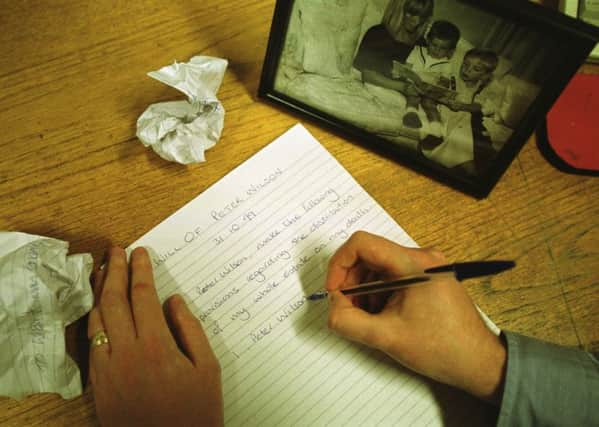How to deal with an estate without a will


1 Know the rules
When someone dies intestate – without a will – it is important for the surviving spouse to consult a solicitor who will advise on the required procedures. In a nutshell, he or she must apply to the court to be appointed as executor of the estate, who then establishes the exact assets of the deceased – to be presented to the court in an inventory. The inventory is accompanied by a confirmation application to the local sheriff court. Once confirmation is granted the assets can be ingathered and distributed to the beneficiaries.
2 Children in charge
If there is no surviving spouse the above applies, but once the (adult) child is appointed executor he or she will need to obtain a bond of caution – an insurance policy intended to protect the estate and beneficiaries against malfeasance or negligence of the executor – before the court will grant confirmation.
3 Who gets what?
Advertisement
Hide AdAdvertisement
Hide AdThe Succession (Scotland) Act 1964 states that if there is no will, the spouse has prior rights to the main home (up to a value of £473,000), furniture (up to £29,000) and cash up to £50,000 if the deceased has children or £89,000 if there are no children. In terms of legal rights in a moveable estate, a spouse and children (the latter collectively) will receive one third. If there is only either a spouse or children they will receive one half.
4 The extras
This refers to any assets remaining within the estate after prior rights and legal rights have been settled. Depending on family circumstances, the beneficiaries can be children, spouses (or civil partners), parents, grandparents, nephews or nieces or, if none exist, ancestors. Ultimately, if none of these applies, the entire estate will go to the Crown, that is, the government.
5 Unclaimed assets
If you hear “on the grapevine” that a distant family member with no other known relatives has died, contact a solicitor who will make enquiries regarding a will. If these enquiries reveal that a will does not exist, the person who believes he or she may be a beneficiary (under the laws of intestacy) can be appointed as executor and instruct the solicitor to investigate the estate. If necessary the solicitor can instruct a reputable searching agent, sometimes known as “heir hunters”.
• Laura McDowall is a partner with Blackadders solicitors.